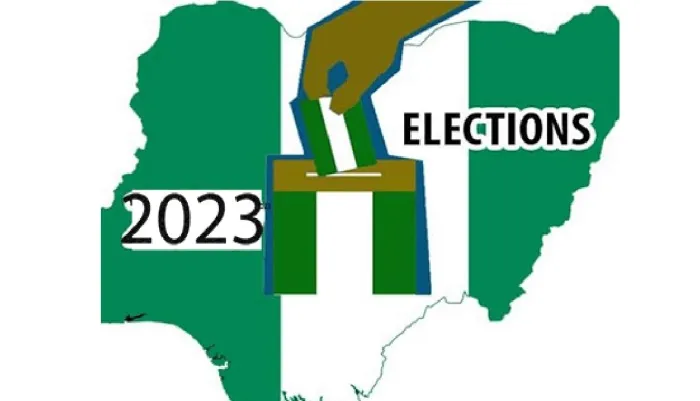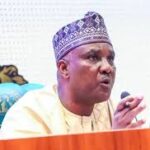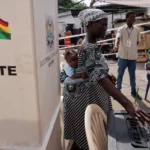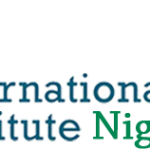The chaotic exchanges among supporters of various presidential candidates seem to have inspired a certain pessimism about life after the February elections in Nigeria. The volleys of insults and blackmails haven’t only tempted some alarmists to predict an outbreak of violence, but have almost led to an ahistorical claim that these lingering signs of chaos are the worst pre-election warning we have ever experienced in the country.
What transpires in Nigeria now, with ethnic, religious and regional fault lines being weaponised to threaten one another, shouldn’t be acceptable or normalised, but they are nothing out of place. The fire-spitting parades from all partisan quarters aren’t even as frightening as the events that led to the 2011 and 2015 presidential elections. The two elections had even foreign alarmists predicting the country’s breakup.
What has set the forthcoming election apart from the previous isn’t the intensity of chaos, it’s the social media firepower, and it would be a mistake to interpret this as the reality offline. Since 2011, the place of social media has been difficult to ignore, and it grew over the years as usage increased along with political participation among the youth, and this theory is valid for disproving what some of us prefer to call an unprecedented invitation to violence after the elections.
A few days ago, the Vice Presidential Candidate of the Labour Party, Dr. Yusuf Datti Baba-Ahmed, had an emotional breakdown in recounting the rate of toxicity and invasion of privacy he had endured since becoming a variable in the next presidential election. He was alarmed by the personalised attacks on, and mischaracterisation of, even his father and the larger family by partisan critics of his political identifications, and thus admitted that such personal boundaries shouldn’t have been crossed.
What Dr. Baba-Ahmed left out of his appeal for sanity in our politics is that he and his principal, Mr. Peter Obi, are the biggest beneficiaries of these chaotic exchanges in the very digital space being cited to demonstrate the inevitability of violence after the elections next month. Known simply as “Obi-dients,” the partisan supporters of the Obi-Datti ticket are admittedly unmindful of personal boundaries in their campaigns and brag about their virulent notoriety in demonising and de-marketing other presidential candidates or their supporters in coordinated social media campaigns, one hashtag after another.
I have always shared that the biggest triumph of the 2023 elections would be the participation of the Igbo, whose history of apathy has an understandable origin. For the first time, a politician seems to be achieving what the unforgettable Chief Chukwuemeka Odumegwu Ojukwu failed to accomplish—inspiring the ethnic group to have faith in Nigeria and partake in the electoral process of a country that a fringe group among them has famously caricatured and referred to as a zoo. No matter what’s made of this dwindling apathy, it’s a victory for the Nigerian state.
The Peter Obi phenomenon has given this election a peculiar colour. It has underlined the viability of the Igbo presidency. But it’s also the most aggressively-marketed ticket on social media. Perhaps that’s why some analysts are misled by such digital fireworks to predict a fatal backlash if the outcome of the elections doesn’t favour his supporters, especially the tweeting and Facebooking youths with an amusingly simplistic understanding of Nigeria’s electoral topography.
One other outcome of the election is the possible escalation of militant operations by the Indigenous People of Biafra if Obi loses. This isn’t because the Labour Party presidential flag bearer earns the group’s support or functions as their bedfellow, but because their incarcerated leader, Nnamdi Kanu’s cult following feeds on the narrative that there’s a conspiracy to stop the Igbo man from occupying the topmost seat in Abuja to sell their agenda. So, it’s feared in certain quarters that those whose faith in Nigeria has been restored by Obi’s presidential prospect would fall back to cheering Nnamdi Kanu, whose sympathisers seem to have petered out in the past months, if another Igbo man’s political dream hits the brick wall.
While this is still a wild theory, even if IPOB revitalises its operations after the long-awaited judgment day, it won’t be a storm. It would rather be the usual sparks between the military and an unpopular guerrilla group demanding a referendum or harassing their kinsmen to emphasise their threat to break away from the Nigerian state. This won’t be any different from what has been witnessed under President Muhammadu Buhari, whose government has failed to win the love of the Igbo despite his attempts, and despite the “gift” of the Second Niger Bridge as one of his aides once described it.
So, whoever wins in February isn’t going to change anything overnight. With possible outbreaks of pockets of riots, which are the usual criminal sectional shows of solidarity with defeated politicians, there’s not going to be violence capable of stopping the handing-over ceremony at Eagle Square. If Atiku wins, he would even inherit the anti-Fulani propaganda that trailed Buhari’s presidency. With a Tinubu victory, the North, especially the Fulani, would take a break from being the convenient scapegoat of Nigeria’s disintegration for the next four years. Otherwise, the only thing chaotic we are going to witness after the elections is a torrent of hashtags online.

 Join Daily Trust WhatsApp Community For Quick Access To News and Happenings Around You.
Join Daily Trust WhatsApp Community For Quick Access To News and Happenings Around You.


